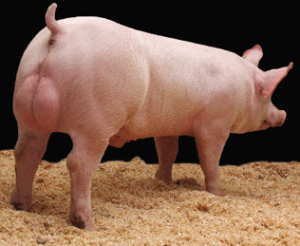
Work in Darren Griffin’s lab is attempting to use the same technologies developed diagnosing genetic disease in human IVF embryos, to improve livestock breeding programmes. By adpating these techniques to in vitro produced (IVP) pig and cattle embryos, genetically healthier individuals may be selected before implantation. This ultimately ensures that only those offspring in possession of specifically desirable traits are reared, thereby enabling an economocally and environmentally sustainable means of food production in order to meet growing market demands. While these research programmes serve a key role in the food production industry they also act as model systems for human IVF and for basic scientific studies about the nature of early mammalian development. The project is also a collaboration with Canterbury Christchurch University (Dr Katie Fowler) and companies such as JSR Genetics, Topigs Norsvin, Paragon Vets and Boviteq. The identification of genes associated with sex ratio skewing in mammals is of key interest to the farming industry, where in many cases one sex of offspring is much more desirable than the other. Peter Ellis has developed links with relevant industry partners to pursue avenues potentially leading to novel sex selection methods in agriculturally relevant species.